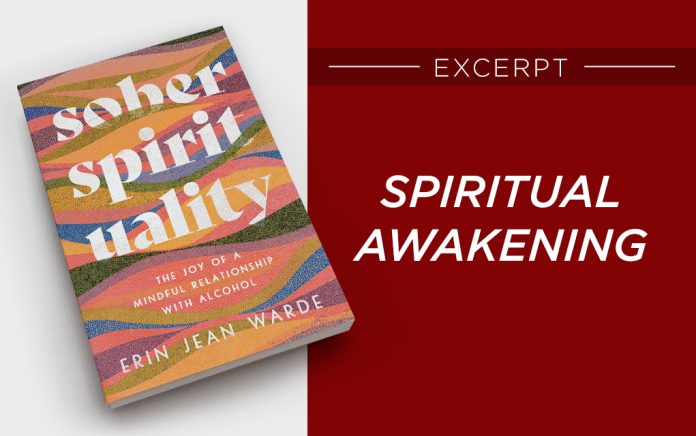To this day, I am not a morning person, even as I wake without an alarm by 7 a.m., my body emerging from the grogginess of a trazodone haze and into another day. Before I leave my bed, I will send a good morning tweet of a raccoon meme, even though I know the only way I will meditate is if I meditate before I open Twitter. If you can believe it, this is how I feel now that I love mornings. My mornings are a mixture of coffee, wishing I could go back to bed, and being grateful I have a morning at all: a chance to breathe and a body that no longer awakens to a hangover but to a different type of life. My mornings, even at their worst, feel like perfect wakings after years and years of hangovers. Sobriety redeemed my mornings from hangovers and transformed them into possibility. In the way God resurrected me in sobriety, I am resurrected each day again and again. There is no fear in death because it is destroyed each day when I wake.
The weird thing about hangovers is that I adapted to them. They set the tone for the day: the muscles governing my movement would be sore, the head housing my mind would ache, the seat of my heart would feel broken, and the voices of my soul would speak only shame. I adapted to believing this is how days begin; I came to believe that every day I rested in God, I also had to rest in soreness, ache, heartbrokenness, and shame. I forgot there was another way. My drinking meant I was shaped to start each day inside a dark night of the soul, even as the rays of sun suggested I could begin again.
When I woke up hung over, mornings were always a marathon.
Oh God, I forgot to get the coffee ready last night.
Wait, when is my first meeting today?
Am I supposed to wear clericals?
Everything was off, everything was more difficult, and—in the chaos of questions—another question couldn’t make itself to the front of my heart: Does life have to be this way?
Over time, I began to hide from myself in the mirror. It wasn’t intentional, but I’d later realize—after traveling past the mirror seventy billion times to make my crappy coffee— that I always kept my head low. Amid my attempts to never catch my own eyes in the mirror, God caught sight of me each morning and, in the tender gaze of compassion, loved me to the end. It was a love I never lost but also a love I couldn’t feel, because if I didn’t want to look myself in the eyes, I certainly didn’t want to stare into the face of God.
In sobriety, Jesus has seen the part of myself I find most vulnerable, the part of myself I have to work to show, which is of course the heart of myself that is the most true. Alcohol kept the beauty of myself safely hidden out of fear of what might happen if a woman began to believe she had the right to love herself the way God loves her. Alcohol hid me out of fear of what might happen if a woman began to believe that loving herself was not differentiated from her faith but an integral part of it. Shrouded inside everything from gender constructs to vestments to bottomless mimosas, I had been hiding from myself in the mirror because I couldn’t look back and see myself anymore.
In sobriety, I started to look into mirrors and see something similar to what God might have had in mind when God gave me breath. I began to wonder if I was still as beloved as I had been before things got so hard, before all the drinking, and if I still retained some of the beauty from the moment when God decided to roll a breath over chaos, willing me to be. I’m still afraid of what loving this part of myself asks of me, because it demands a lot. But it’s worth the fear, given what it has brought forth from me, which is nothing less than the abundant life that comes when we let Jesus awaken us to something other than a life of numbness. My life when I was drinking was not the worst life a person could have, but it wasn’t abundant, it wasn’t joyful, and it wasn’t an offering of myself in my beauty and fullness to the world. When I was drinking, I was a breathing tomb, waiting for Christ to destroy my death and resurrect my soul. Now I am an incarnate witness to how the tender healing of God can gently speak into a heart and offer her a life worth living and the awareness that she can trust herself because she is listening with a heart, soul, and mind awakened to God and to herself.
While I was in the first jumbled months of my attempt at sobriety that “stuck,” I was drawn into a faith more mystical than concrete, because my sobriety is a mystical experience. I struggled to put words to it as much as I desired to do so. While what was happening could certainly be understood biologically and systematically and practically, the overarching narrative of my sobriety is that something mystical was happening to me. I was, in my choice to quit drinking, experiencing the greatest spiritual awakening I had ever known, and I revel in that continuous awakening to this day.
Excerpted from Sober Spirituality by Erin Jean Warde, ©2023. Used by permission of Brazos Press.

